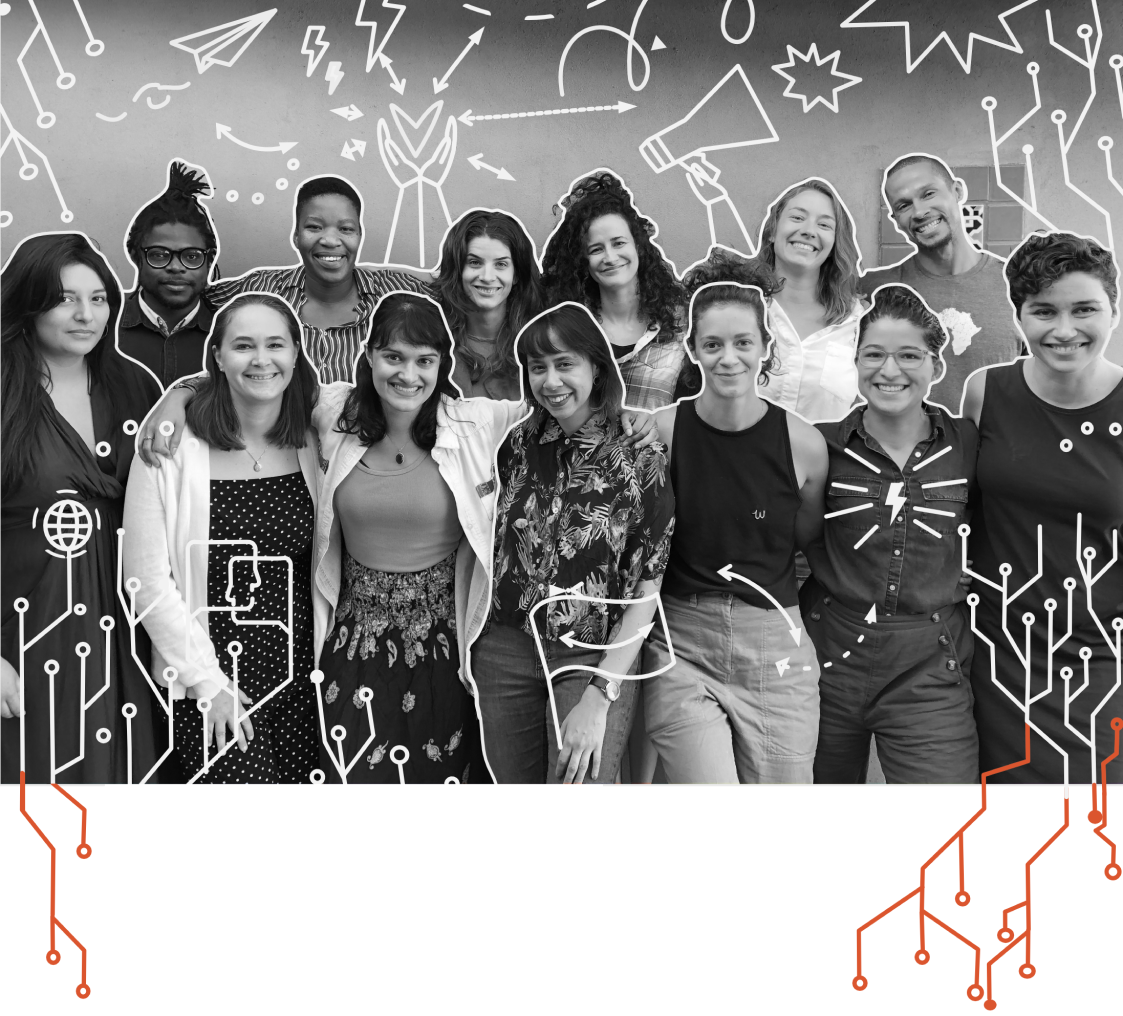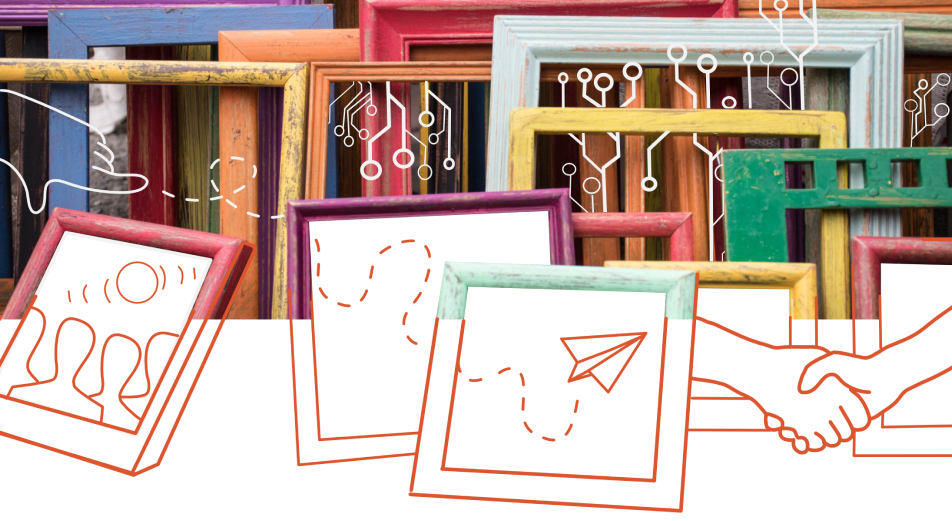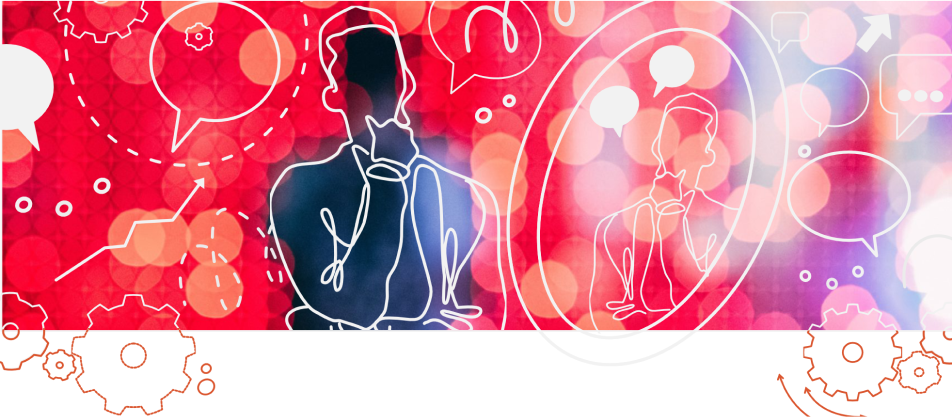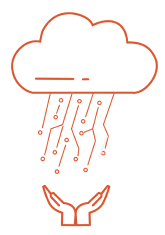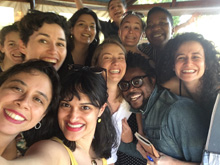How to re-use existing digital tools
Research
We believe in supporting civil society to reduce digital waste, which could involve re-using existing solutions instead of building new tools from scratch. In 2019 we sought to understand what conditions and contexts favour the successful repurposing of existing technologies and explored the topic of re-use in two different areas.
Through the Digital Sparks project, we researched how UK charities re-use existing digital tools for service delivery. We found that while re-use isn’t necessarily always the best option, in many cases it can enable quick testing, make it easier for organisations to kickstart their entry into designing digital services, increase a team’s confidence and positively impact attitudes towards digital tools more broadly.
We also researched tool re-use within open contractingOpen contracting is the publishing and use of open and accessible information on government contracting. initiatives, supported by the Open Contracting Partnership (OCP) and the World Bank. Certain factors came up as significant contributors to success in re-using existing open contracting tools, including in-person support (from tool authors or support providers), training, clear and thorough tool documentation and the simplicity and adaptability of tools themselves.
The lived reality of digital ID systems
Research
When it comes to digital systems, we believe it’s just as important to understand the contextual realities as it is to dig into the technical functionalities. In a year-long research project (our largest research project to-date!), we investigated the lived experiences of people in five regions where digital identification systems are being implemented: national systems in Nigeria, Zimbabwe and Thailand, and humanitarian systems in refugee camps in Bangladesh and Ethiopia. We worked with in-country researchers in each location and co-developed participatory research methods that would respect contextual differences and explore related themes. We found that though digital ID systems provide important benefits, such as access to services, they also consistently raise challenges, particularly for the communities whose rights are already being denied. Some of these challenges included low levels of public and civil society involvement, barriers to use, lack of informed consent and concerns about data protection.
We hope that our findings can help push for more context-respecting digital ID systems around the world. To enable this, our findings can be accessed in a thematic report and five country case studies, all available in English, Spanish, French and Arabic. (With an advocacy toolkit coming soon!) The country case studies are also available in the respective languages of the site they cover–all in all, that totals to 15 different languages!
Cultivating the responsible data community
Research
Engagement
The Responsible Data (RD) community celebrated its 5th birthday in 2019. With over a thousand members, the RD community–through a website, mailing list, newsletter and community events–is a space for conversation about practical ways to both avoid unintended negative consequences when using data for social justice work and develop better, rights-respecting ways of using data. 2019 was a year of many discussions on issues like informed consent, the use of call detail records in the humanitarian sector, biometrics in aid delivery and more.
The power of the RD community shone when, earlier in 2019, a partnership was announced between the World Food Program (WFP) and Palantir Technologies, a private tech company with ties to the CIA. The RD community engaged in dialogue that resulted in an open letter to WFP. This letter was representative of a larger debate around how to ensure that civil society work is free from exploitative data practices and that institutions like WFP commit to using rights-respecting technical systems and partnerships.
To continue to foster an enjoyable and safe environment for all members, we collaboratively built community guidelines and a policy for the RD listserv. Together with MERL Tech, we also published a living collection of Responsible Data-related resources.
Deepening our regional support
Regional Support
Through our Matchbox partnerships, we work alongside organisations as they implement projects. We provide context-specific, holistic support on how to effectively and responsibly harness data and tech. This year we welcomed six new Matchbox partners from five different countries.
Latin America
One of our partners in Latin America is the Centro de Estudios Legales y Sociales (CELS), an Argentinian organisation known for its work documenting human rights violations. We are working with CELS to improve the databases they have created to document cases and to help them draw out advocacy targets from their data. Also in Argentina is the Asociación Civil por la Igualdad y Justicia (ACIJ), a civil society organisation promoting access to information, transparency and government accountability. We have been collaborating with ACIJ to update their Budget Monitor platform, designed to flag government budget reallocations, which can indicate misspent funds or corruption. In Paraguay, we're working with reAcción, an organisation conducting citizen-led monitoring of the country’s public education fund.
Sub-Saharan Africa
The Legal Advisory Information Center (LAIC) is an organisation seeking to make land tenure and rights more inclusive, just and equitable through their legal empowerment work. With them, we are exploring how data and technology can amplify access to justice to unserved communities in South Africa. We have also been working with the Kenya Civil Society Platform for Oil and Gas – a coalition that advocates for transparency and accountability in the Kenya’s oil and gas sector–supporting them to develop a system that aggregates otherwise siloed datasets on oil and gas contracts. We also teamed up with the Private Public Development Center (PPDC) in Nigeria, who work with open contracting tools to improve procurement governance.
Technology for legal empowerment
Research
Engagement
Regional Support
In a world where over 4 billion people live outside the protection of the law, legal empowermentLegal empowerment is strengthening the capacity of all people to exercise their rights. It’s about ensuring that law is not confined to books or courtrooms, but is available and meaningful to ordinary people. work is increasingly needed. In 2018, we partnered with the Open Society Justice Initiative to analyse the work of 136 legal empowerment initiatives worldwide.
Our research found that there were many opportunities for increased learning and sharing, which prompted us to offer pro-bono, actionable and tailored support to legal empowerment organisations interested in working more with data and tech. Using what we’d learned through our research, we supported thirteen partners working on legal empowerment issues in different countries. We also experimented with new (to us) ways of providing support, like teaming up with Namati’s team explore a new way of being in touch with their community via an ‘Ask Me Anything Session’. We’re excited to continue learning about technology in legal empowerment as we support the Legal Advisory Information Center (LAIC) in South Africa as part of our intensive support programme.
The positive impact of data protection legislation
Research
Engagement
The implementation of the EU’s General Data Protection Regulation (GDPR) in 2018 raised many debates on how civil society could be affected by this new data protection legislation. Civil society organisations working outside the digital rights space worried that data protection legislation might even hinder their activities–but as ever, the reality is blurrier than that. This year, we sought to bring a constructive lens to these debates, exploring how the GDPR had been–and could be–used to strengthen the work of civil society. With the support of the Open Society Foundations, we gathered examples of how data protection legislations can lead to impactful and innovative work: from strengthening the fight for worker’s rights to advancing privacy rights and addressing tech-enabled, gender-based abuse. We shared more about this work on this Digital Impact podcast episode, too. We hope these case studies can serve as inspiration to other organisations wondering how to make data protection legislation into an opportunity rather than a burden.
Supporting young feminists to use tech that matches their politics
Technology
For our partner FRIDA, 2019 was a year dedicated to identifying opportunities where they could use data and technology more intentionally and in-line with their values. As an organisation that supports women, girls and trans* youth all over the world, FRIDA wanted to ensure that the way they choose and implement technology matches their political views. To support them in doing this, we worked with FRIDA’s team to identify steps they could take, processes they could implement and goals they could define. We took stock of what they had already and where they wanted to go, and we collaboratively developed a roadmap for the future. Keep an eye on our blog for tactics and tools you can use to do the same in your organisation.
Transparency & privacy in beneficial ownership
Research
In different parts of the world, governments and institutions are taking action against the abuse of anonymous company ownership by requiring more transparency around who actually owns private companies. (The individuals who own some kinds of companies are sometimes called “beneficial owners” and are afforded a great deal of anonymity in many jurisdictions.) By making this kind of information transparent, it’s easier to track illicit flows of information and, potentially, corruption. While increasing transparency is generally a positive move, in the case of beneficial ownershipRegisters that include information, which is often otherwise kept hidden, about the owners of private companies. registers questions about data protection and privacy have been raised. Supported by OpenOwnership and The B Team, The Engine Room learned that public disclosure of information about beneficial ownership is a reasonable measure to increase transparency, but governments should be mindful of privacy when implementing it.
On-demand digital security support in Chile
Technology
Regional Support
In Chile–as in many areas of the world–the end of 2019 was marked by protests and calls for social change. What started as a series of protests against an increase in public transport fees in Santiago has grown into a broader movement denouncing increasing levels of inequality, expensive healthcare, low levels of education funding, and violence against women and LGBTQI people. Across the country, diverse groups are uniting to call for a more just future, demanding reforms to the constitution, a relic from Chile’s pre-democratic past under military leader Augusto Pinochet. The government has responded with force and violence–in the first weeks of the protests there were over 2,300 accusations of human rights violations. Within this context, we provided security support to feminist groups, citizen journalists, gender activists, artist collectives and others. We supported some organisations to set up more secure communications channels through VPNsA VPN, or virtual private network, can obscure certain information about your internet connection in order to add a layer of privacy to your online activities and information you send over the internet. and secure messaging. Together with journalists, we explored ways to keep mobile devices more secure. We also offered guidance around ways to plan ahead for internet shutdowns and what could be done if and when they happen.
Refining our light-touch support
Technology
Regional Support
Alongside our ongoing work in providing light touch support to activists and civil society organisations that reach out to us, in 2019 we proactively identified spaces where our knowledge could be particularly relevant. This led us to support over thirteen organisations working on legal empowerment, such as the pro-bono arm for the legal practice DLA piper.
We also supported Sekondi Takorandi Municipality in Ghana in improving their municipal budget transparency. By creating more user friendly visualisations of their budgets, they were able to share information with local communities. With Haqdarshak, an organisation based in India that uses a platform to help citizens benefit from welfare schemes, we worked to improve user design and experience, while considering responsible data practices. We also supported Trocaire, a non-profit that fights against human rights abuses and gender-based violence in 17 countries, in improving their processes of data collection and case management software.
